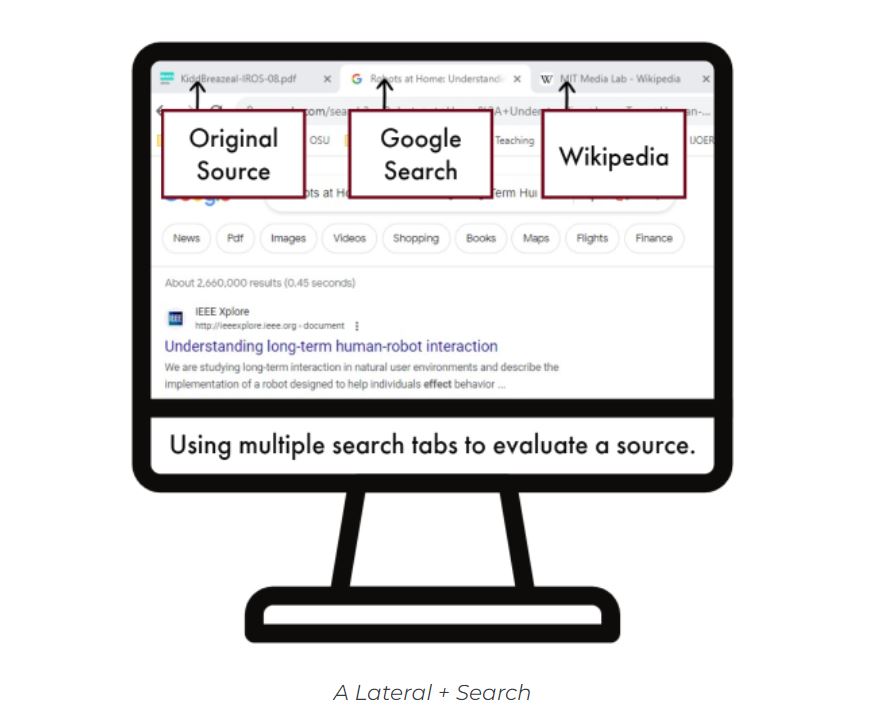Evaluating Information and Information Sources
Lateral Reading – Evaluating Unfamiliar Websites for Credibility
Lateral reading is another strategy that may be useful to call on when evaluating sources. Lateral reading is an approach borrowed from professional fact-checkers that can help you evaluate the credibility of potential sources and verify that the information found in them is accurate. Lateral reading involves moving outside the source that you are evaluating and investigating what others have written about it, the information it contains, and its author or publisher. Lateral reading can be especially useful when evaluating unfamiliar websites; you can check what other reputable websites say about your potential source.
The following video from University of Louisville Libraries introduces the concept of lateral reading.
Created by Robert Detmering, Amber Willenborg, and Terri Holtze for University of Louisville Libraries and licensed under a Creative Commons Attribution-NonCommercial-Share Alike 4.0 International License.
Tips for Lateral Reading When Evaluating Websites

Recalling the information on “What Makes Information Credible?” and “Evaluating Other Types of Sources for Credibility” from the previous section “Is This Information Credible?” may also be helpful when reading laterally.
1. Open the relevant website (potential source) on your screen.
You will be reading or viewing one aspect of your potential source at a time, and checking those things out online.
2. Open a new tab to evaluate the source as a whole.
Type the name of the website, the publishing organisation, and/or the author into a search engine. Look for other websites’ assessment of these among your search results. Scan the list of search results, do not limit yourself to the top few. Checking reliable factchecking websites such as: Fullfact.org, Snopes, Politifact, SciCheck, FactCheck.org, along with checking Wikipedia, can help if you find something that rouses your suspicions.
Make a note of what you find.
3. Open a new tab to determine what type of source it is.
Popular? Substantive Popular? Professional? Scholarly?
Make a note of what you conclude.
4. Open a new tab to evaluate the author/publishing organisation.
In this step you will focus on who created and published your potential source and whether you think they are trustworthy regarding the information set forth. Can you determine, from what is written about them in other sources, that the author/publishing organisation are sufficiently knowledgeable in the subject area and respected in the field? The more you can find out about the author/publisher, the more confidence you can have in your decision about their credibility, or otherwise.
Be extremely skeptical regarding websites (and indeed any source) that do not identify an author. These sources should normally be avoided.
Make a note of what you find.
5. Open a new tab to evaluate major pieces of information the source puts forward as fact.
Go back to your potential source, engage in the argument, and identify the major statements of fact that the author makes. Investigate these arguments using search engines to find any relevant information. Check what others have said about your potential source’s statements of fact to get an idea of how well their ideas are accepted by others.
Remember however, if your source is especially innovative, not everyone may agree with some of its statements of fact but it may still be a credible source. You will have to use your own critical thinking skills, taking into account other indicators of credibility relating to the source, as well as your topic and research question, as you consider your potential source’s credibility here.
Make a note of what you find.
6. Review your notes from steps 2 to 5 and make your inference about the source’s credibility.
Once you have made your decision repeat the process for all the unfamiliar websites you want to evaluate.

